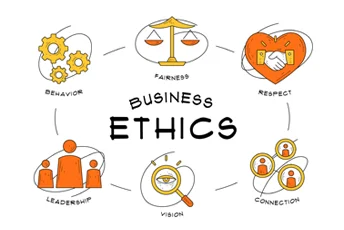
Top 7 Talent Retention Strategies for SMEs According to HR Leaders
Posted on 12 August 2022 in Business | Anna Beatrice
What is your top talent retention strategy for SMBs with small budgets?
Here are the top seven talent retention strategies according to HR leaders:
Create a Culture of Gratitude and Engagement
It doesn't take a massive budget to improve retention at your SMB. In fact, if you prioritize "gratitude and connectedness" in your culture, your team members won't want to leave. When employees feel appreciated for their day-to-day efforts, they have a higher sense of engagement at work. And when they have meaningful relationships with their peers, they don't want to leave. At Motivosity our top retention strategy completely revolves around gratitude and connectedness and it does wonders for our culture!
Logan Mallory, Motivosity
Hold Stay Interviews
Stay interviews are typically held between an employee and their employer either every 6 months or quarter to help the employer understand how satisfied the employee feels at their job and if there are any areas that can be improved upon. These are great as they don’t require any extra cost of an SMB’s budget and provide a safe space for an employee to be open with their employer. This helps them feel more comfortable and supported in their current position. The employer can take the information they are told and make changes that will positively impact the employee’s work experience, helping them to be more satisfied with their job and get the company to retain its employees.
Rich Rudzinski, Drivey
Anticipate and Preempt Any Potential for Exit
Don't wait for your top talent to ask for a raise, or worse, inform you they have another offer before you discuss their current satisfaction. If they are true top talent, they have options and know they can go elsewhere for more money or perks. However, many folks don't want to start over, and would be content if a few things shifted. All roles inevitably end, the issue is on the terms we'd all prefer. Don't wait for them to start that conversation, and be viewed as a resource that serves the life they want beyond a paycheck and benefits.
Juan Kingsbury, Career Blindspot
Make Workplace Culture Count
In our current labor market losing employees hurts. Many of my small business clients are looking at every angle to keep their employees. The leaders I work with worry about being able to give their team competitive raises and bonuses because they think that money is the main factor for retention. Equitable pay does impact retention, but my top talent retention strategy is making culture count.
Businesses that intentionally look after their culture keep their employees longer. That sounds like a really nice rainbows and unicorns idea, but I've seen behind the curtain and can tell you it's true. I recently interviewed each employee of a client's business to get a pulse on culture and employee sentiment. They described the culture as laid-back, supportive, and caring, ultimately, giving their employer an 85% eNPS (employee net promoter score). That's the highest score I've ever seen. Focusing on culture rather than monetary incentives pays off for small businesses.
Katie Parker, Startup Your HR
Offer Child Care Benefits
With small budgets and limited resources, SMEs find it challenging to provide competitive compensation and benefits to all employees. So instead of focusing on monetary benefits, SMEs can offer significant non-monetary benefits such as additional childcare leave , beyond legal stipulations. As working parents struggle to balance their priorities between work and family, offering extensive childcare leave would be a valuable tool for attracting and retaining talent. Through a family-friendly work environment, employees will be able to feel that their needs and concerns are prioritised, giving them a reason to stay with the company despite their market average salary.
Suki Bajaj, QuickHR
Allocate and Rotate Employees According to Their Skills
Talent retention is a key factor. The high turnover rate occurs because companies compete to attract and retain the best professionals by offering bonuses, flexibility, and others - SMBs tend to suffer more since their budget is usually limited. In our company, we focus on the higher engagement of employees and the development of employees' success programs.
Among our talent retention strategies, I think positioning our employees according to their skills stands out. We implemented this culture within the company because, after much effort and testing, we concluded that composing a productive team that is satisfied with its work is also a practice related to the roles people perform within the company. In other words, allocating the right people in their proper positions in the organization in search of a better use of their skills has increased our employees' engagement and productivity. Yet, it has helped us a lot in retaining talent without draining a great amount of our budget.
Ricardo von Groll, Talentify
Understand The Workplace Experience of Your Value Creators
We have tried so many things (well-being, flex work, culture, digitization programs, …) to fight attrition, with little success. Because we don’t understand what the experience of work is, that makes people leave. If we knew which interactions in day-to-day work cause so much friction that people leave, HR and business leaders could take impactful action. And as we can’t go after every experience of everyone in the company, we should focus on those interactions that are (1) most important to (2) the people in jobs that create the most business value, and (3) that provide a particularly bad experience to them. In short: It’s the critical experience of the critical talent segments that defines your retention strategy.
Volker Jacobs, FOUNT Global Inc.
HR professionals have a large role in establishing and retaining a skilled workforce. It’s important to foster an employee-centric culture where employees will feel valued and appreciated. Always remember that boosting employees’ morale can help improve workplace productivity, thus leading to progressive business growth.
Enjoying this content? Subscribe and we’ll send the latest updates and special offers directly to your inbox.
































































































































